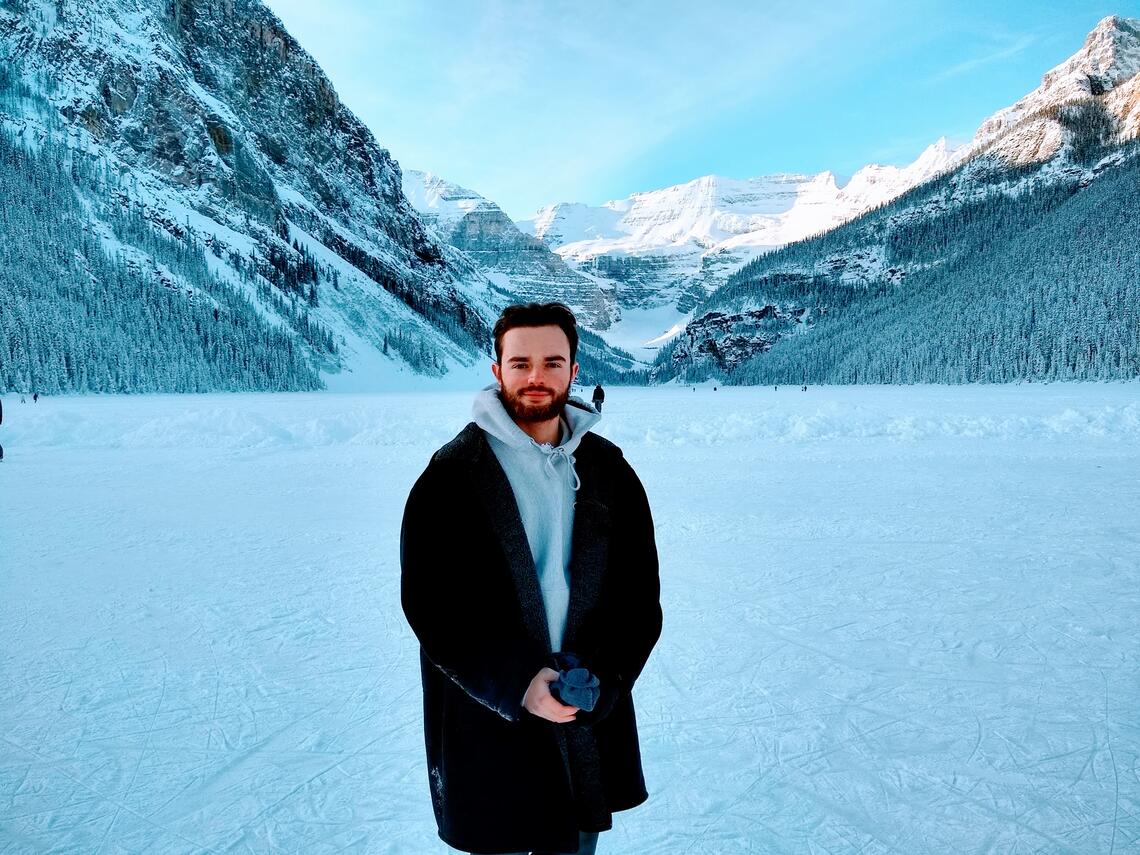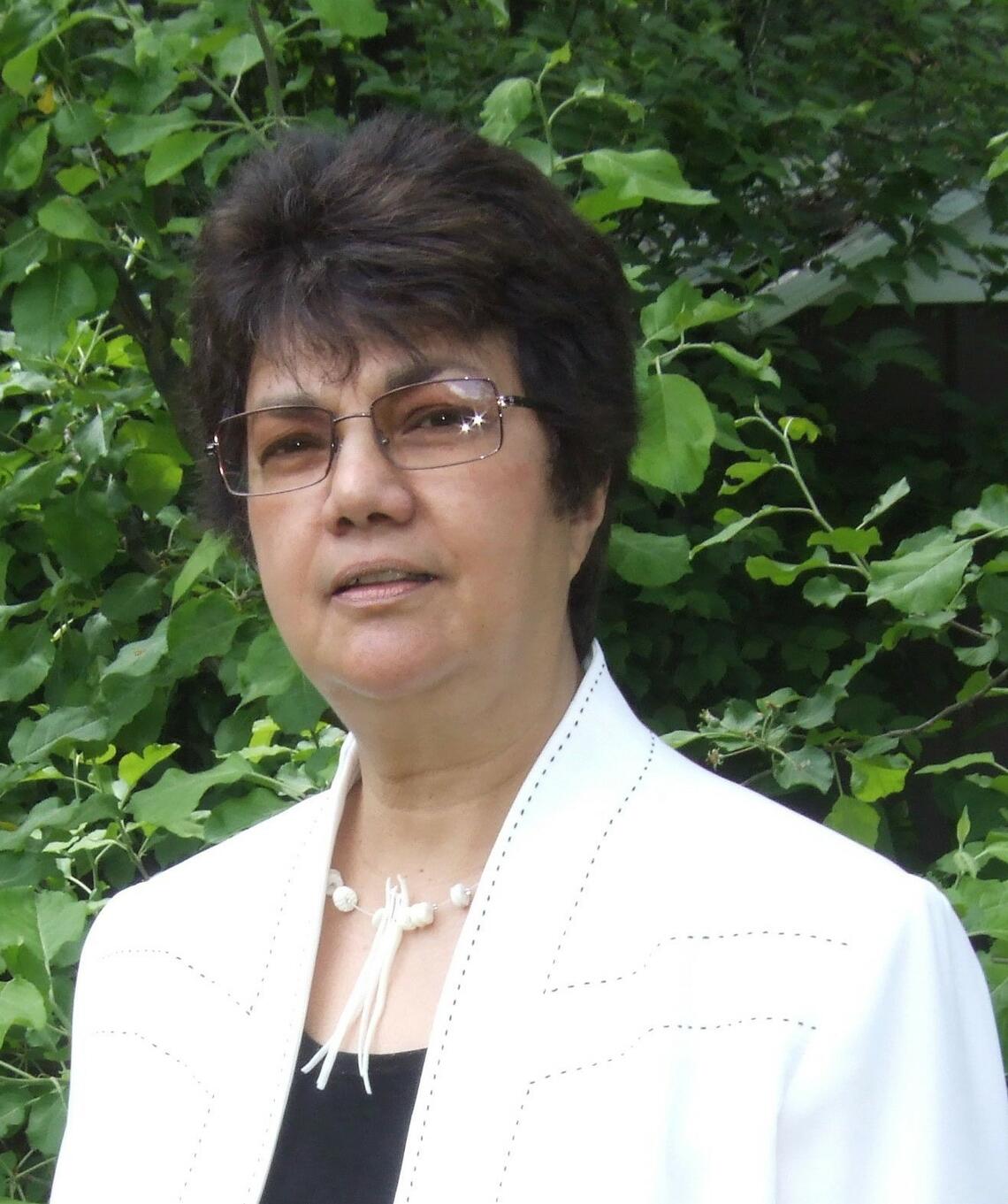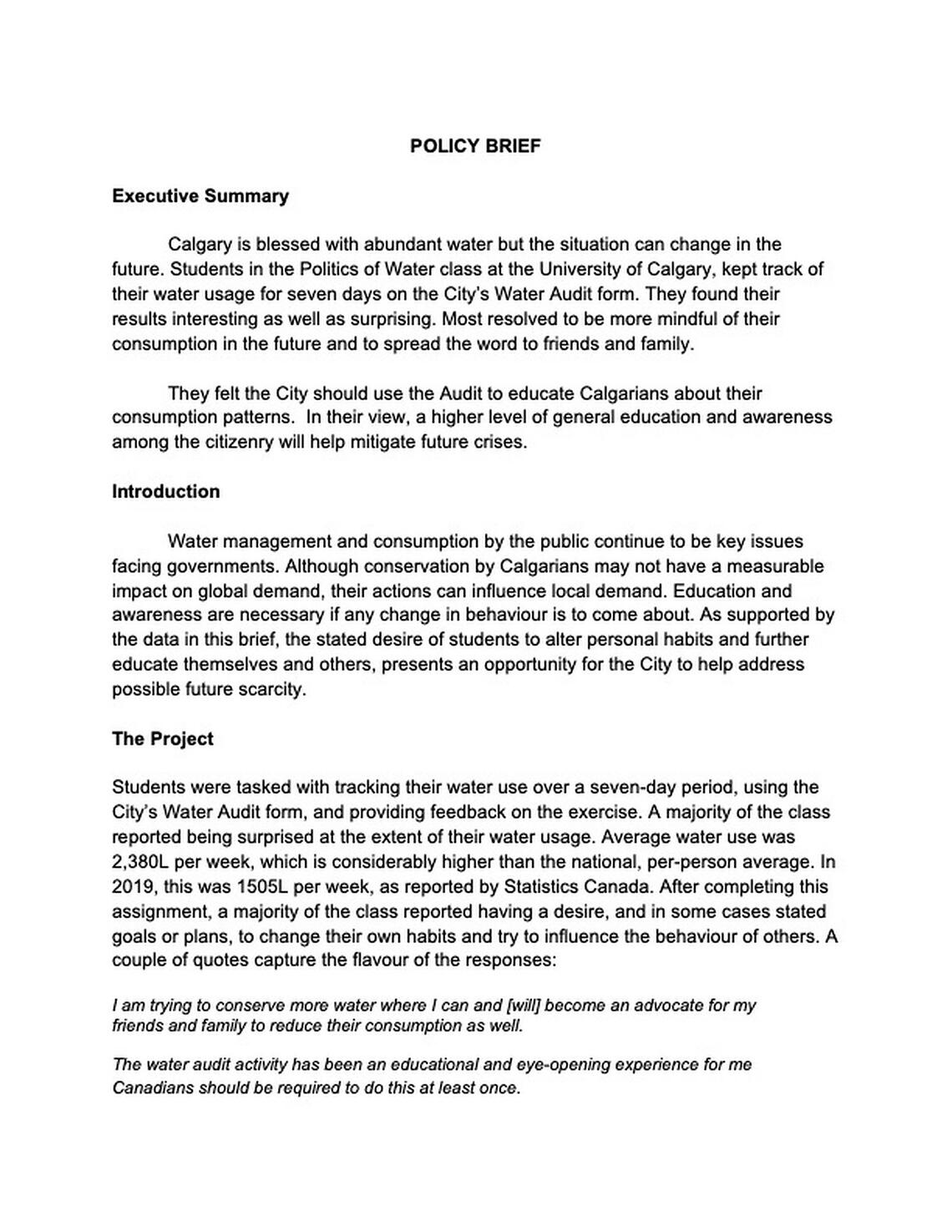May 16, 2023
Showcasing Student Work

May 17, 2023 from Dr. Doreen Barrie’s POLI 723 The Politics of Water
We’re showcasing a Policy Brief delivered to the City of Calgary Mayor’s Office developed by UCalgary graduate students!
Connor O’Reilly is in the MA Course-based program in the Dept of Political Science and Carter Brust is in the MSS program in the Centre for Military, Security, and Strategic Studies. Both were students in POLI 723 The Politics of Water with Dr. Doreen Barrie. They worked on a Policy Brief for the course detailing water consumption patterns which was submitted to the City of Calgary’s Mayor’s Office
Connor and Carter, prior to taking POLI 723 The Politics of Water, how much thought did you give to water?
Connor: I hadn't really ever considered water as a highly important political issue prior to taking this class. Rather, I assumed that the global water crisis was just one small factor of the ongoing climate crisis, a part but not a preeminent variable, as I do now. Now I see the effects of water on politics practically everywhere in my continuing studies in political science. Specifically, I see the effects of water politics on topics of conventional war, ideological changes, and mass migrations.

Connor O'Reilly
Carter: Coming from a security background, I was aware that issues surrounding water can feature prominently in both foreign and domestic statecraft, especially in regions where the resource is scarce. I was also aware that water-related conflicts, such as disputes over shared water resources, can escalate into political tensions and armed conflict. The class provided context to these broader themes, unpacking the nuances behind water policy and how governments from municipal to federal manage the resource.
Tell us about the Policy Brief you developed, what does it intend to do and do differently?
Conner: This Policy Brief is intended to be a vessel for broader civilian water use education. What spurred us to make this Brief was the fact that many of the students found their results interesting and surprising, both in how the water was used and the amount consumed. In fact, a majority of the participants claimed to make specific plans to both change their behaviour individually as well as educate interpersonally. This latter desire shows how there is an educational opportunity and desire to teach others, especially those interested in environmentalism or the politics of water about civilian water conservation.
Put simply, as evidenced by the students' submitted projects for the class, there appears to be a desire to further educate others on the topic of water politics and this Brief intends to actualize that desire.

Carter Brust
Carter: The brief concludes with two recommendations. The first is for the City of Calgary to revise their civilian water audit form. Last updated in 2001, much has changed in technology, habits, and behaviour over the last two decades. The goal is to have a form that reflects these changes and provides users with more accurate data on their water consumption. The second recommendation is that the Ministry of Education consider the implementation of age-appropriate water literacy programs. If people are not aware of their water use, then they have no reason to alter their behaviour. While many of us remember learning about water and its uses in elementary school, we were either too young to effectuate change or simply forgot as we got older. As with any political issue, continued education is key.
Why do you think Calgarians would benefit from greater awareness about their water supply?
Connor: I think that the preeminent benefit of greater awareness of water politics, specifically information on personal water use, is that once one is educated they are more likely to seek further education and see water politics as the important issue that it is. Water politics is an important and normatively under-appreciated issue, even in relatively water rich Alberta, and I think that any further education on this topic is a benefit.
Carter: It’s not unreasonable to assume that most people are somewhat mindful about their water use, however, most people are still unaware of the broader issues surrounding this vital resource. Water comes out of the tap, we see it for a brief moment before it disappears down the drain. I people can visualize how much water they consume, they may be more likely to alter their behaviour to use less. The goal here is not to push any particular agenda or coerce people to change their behaviour, but rather to simply provide information to people and let them make the changes they deem necessary.
Dr. Doreen Barrie, all students in your course kept track of their water usage for seven days on the City of Calgary’s Water Audit form. Why did you ask your students to keep track of their water consumption?
The class project was an exercise in experiential learning, engaging students in a hands-on assignment dealing with the topic of the course. Like most Calgarians, they pay little attention to water, unless City crews dig up their street and shut off water to their homes! There is no reason to because it is abundant. However, they also learned that the Bow is glacier-fed and since glaciers are melting at an alarming rate, scarcity looms in the future.

Dr. Doreen Barrie
What would you like your students to take away from this course?
I refer to water as the Cinderella of resources, taken for granted while it does all the work! I hope students who have taken this course will appreciate this unique and irreplaceable substance long after they have forgotten about governance, allocation and legal rights to water.

